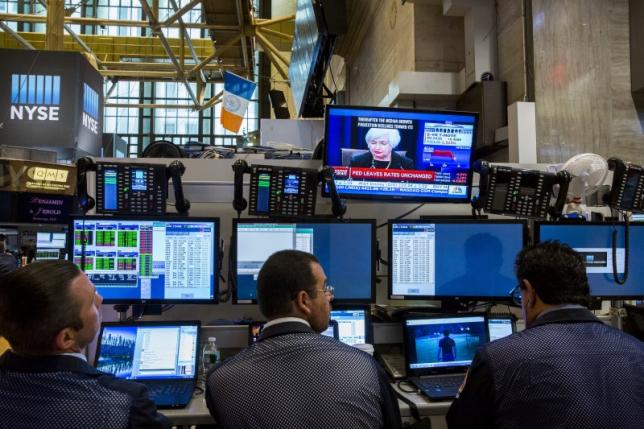Markets see minimal election risk to Greek bailout programme

Whatever the outcome of Greece's election on Sunday, seen as too close to call between Alexis Tsipras' Syriza leftists and Vangelis Meimarakis' New Democracy conservatives, markets appear confident its bailout will not hit the buffers.
Under the country's third, 86 billion euro ($98 billion) rescue brokered in August, the winner will need to oversee deep economic reforms, a recapitalisation of the country's big four banks and the unwinding of capital controls imposed in late June to prevent the collapse of the financial system.
But he will almost certainly do so at the head of a coalition government, which means a supposedly watertight agreement will be subject to horse-trading, both domestically and between Greece and its international creditors.
"Irrespective of which parties end up forming a coalition, Greece is most likely to head towards a period of relative political stability," said Unicredit analyst Tullia Bucco in a report.
"The new government will fulfil the commitments undertaken with its lenders, having understood that the country 'would not be saved at any cost' as EU Commission President (Jean-Claude) Juncker recently said."
Recent trends in Greek financial markets suggest that is a popular view.
After a three-day run-up, Greek equities, were down 1.4 percent mid-session on Friday – roughly in line with broader European markets – with bank shares down 3.1 percent.
The yield on benchmark 10-year Greek government bonds was down 18 basis points at 8.26 percent. When campaigning for the election began in late August, it was around 9.2 percent.
No shortage of partners…
The government will be led by either Syriza or New Democracy, but Tsipras and Meimarakis' deep mutual mistrust of each others' political views means there is little chance it will feature both.
Given that there will be no shortage of parties supporting Greece's euro zone membership for both to pick from, the likelihood of an initial outcome that is bailout-negative is slight.
"The risks are much smaller than in the January election (that took Tsipras into office on an anti-bailout ticket), given that both parties have committed to implement all the policies in the (memorandum) recently agreed with Greece's official creditors," HSBC economist Fabio Balboni wrote in a report.
The parties backing the bailout and euro membership – Syriza, New Democracy, socialist PASOK, To Potami, Independent Greeks and the Union of Centrists – account for around 80 percent of the electorate.
…But no end to political crisis
But that fragmentation creates problems of its own.
If Tsipras wins, he will face opposition to the bailout from within Syriza, said Mujtaba Rahman, Practice Head Europe for political risk consultancy Eurasia Group.
"Defections from a Syriza government are likely as the government moves to conclude the bailout's first review by the end of the year," he wrote in a research note. "Ultimately, however, we think a successful review is likely."
Teneo Intelligence analyst Wolfango Piccoli believes the omens from recent Greek political history are not promising.
"Each of the three past elections since the first bailout (in 2010) have not solved Greece's deep political crisis, and Sunday's vote will be no different," he said.
"The polls will not …yield the governance required to successfully implement the bailout and restart the economy."
Under a best-case scenario Greece, after an initial period of calm Greece is likely to see more hesitation, missed deadlines and political wrangling, he said.
In the worst case, Greeks will return to the polls for a third time this year – something both Tsipras and Meimarakis have, at least in theory, ruled out.
Others are more sanguine about what prolonged negotiations might bring.
"At worst this could cause delays in the programme implementation… However, it should not threaten the future of the overall rescue package," said HSBC's Balboni.
[Reuters]





